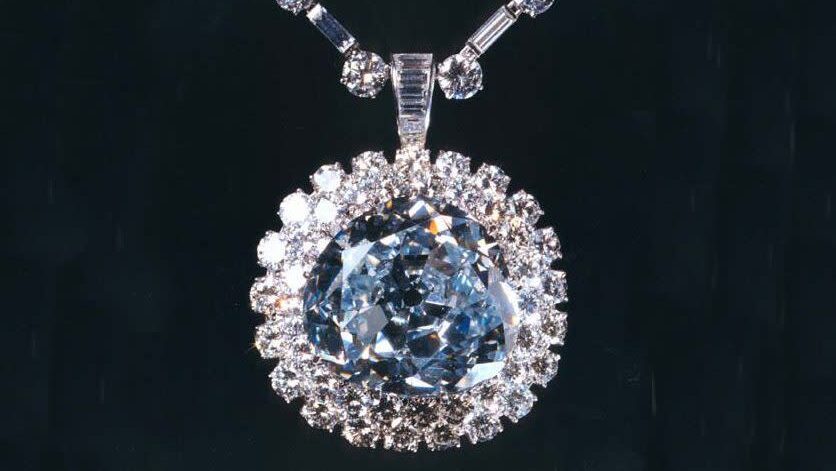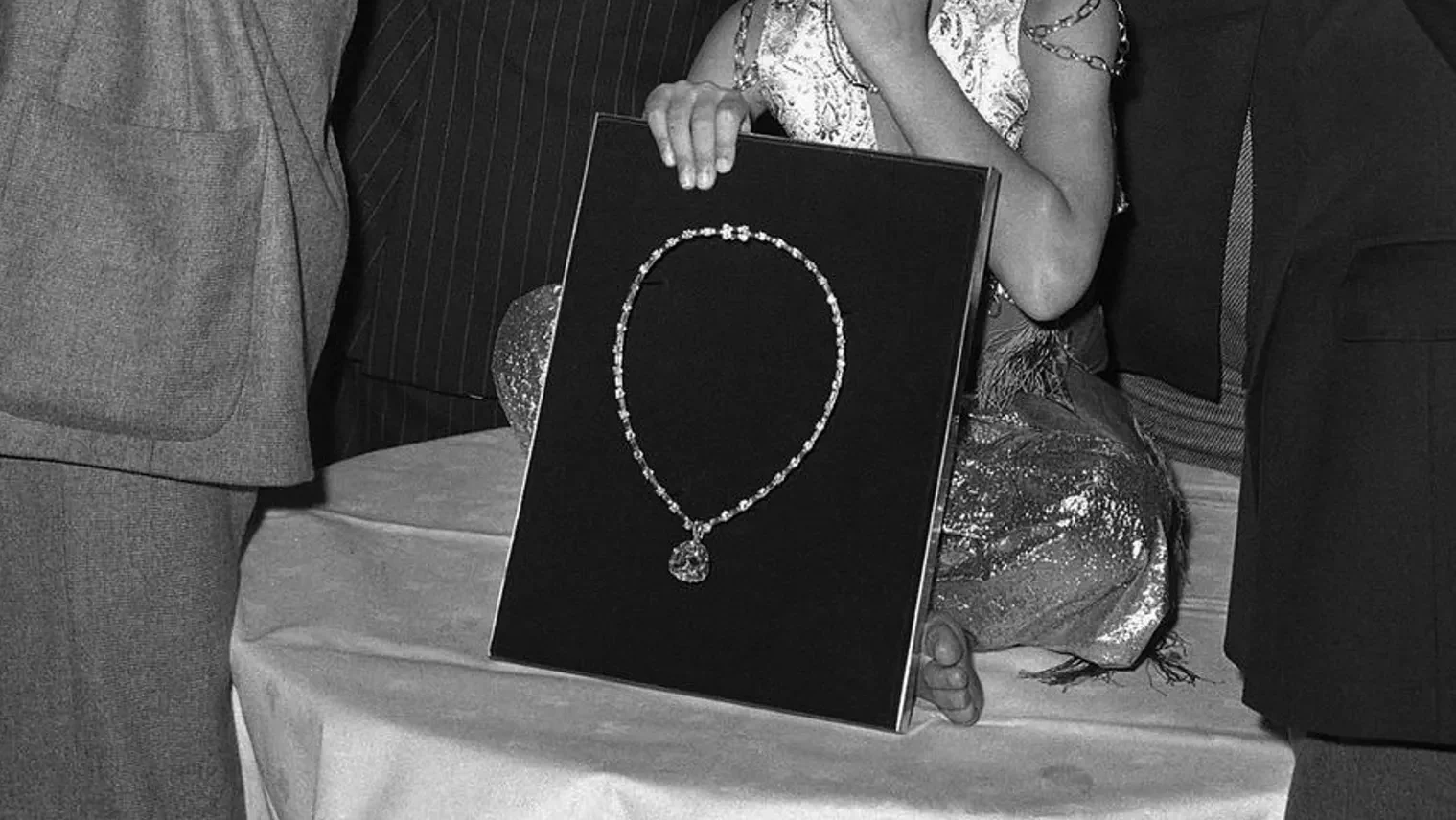Qatari Royal Loses UK Lawsuit Over Idol’s Eye Diamond
In a dramatic turn of events, a member of the Qatari royal family has lost a high-profile lawsuit in the United Kingdom involving a rare and valuable diamond known as the “Idol’s Eye.” The case has captivated both legal circles and the public, drawing attention to the complex world of rare jewels and high-value legal disputes. The lawsuit, which was filed against a prestigious London auction house, has left the Qatari royal with a significant legal defeat and raised questions about ownership and authenticity in the world of luxury goods.
The Controversy Surrounding the Idol’s Eye Diamond
The “Idol’s Eye” diamond, a breathtaking 19.85-carat stone, is one of the world’s most famous and valuable diamonds. It is renowned not only for its size and beauty but also for its intriguing history. The diamond was originally discovered in India during the 16th century and has been passed down through generations of royalty, making it a prized asset in the world of fine jewels.
The diamond is named after its distinct shape, which is said to resemble the “eye of an idol” — a reference to its mystical and almost magical allure. Over the years, the Idol’s Eye has been owned by various wealthy individuals and institutions, and its value has only increased as its history became more well-known.

However, in recent years, the diamond became embroiled in controversy. A prominent Qatari royal, who sought to secure ownership of the precious jewel, claimed that it rightfully belonged to his family. The royal, whose identity remains undisclosed due to privacy concerns, approached a renowned auction house in London to acquire the diamond, which had been placed for sale.
The auction house, which had been handling the diamond’s sale, claimed that the stone was legally owned by a private collector. This assertion led to the lawsuit, with the Qatari royal accusing the auction house of either selling the diamond unlawfully or misleading him about its provenance.
The Legal Battle and Court Ruling
The legal battle took several months to reach a conclusion. The Qatari royal family’s legal team argued that the Idol’s Eye diamond was part of a long-lost family collection that had been stolen in the past, and they demanded its return. They contended that the diamond had been sold without the proper proof of ownership, and that they had a legitimate claim to it.
On the other hand, the auction house defended its actions, insisting that the diamond had been legally acquired from a private collector, and that all ownership documentation was in order. The auction house argued that the sale was conducted according to international laws and that the diamond had been properly authenticated by experts in the field.
The case was presented to a British court, where both sides presented their evidence. After careful consideration, the judge ruled in favor of the auction house, declaring that the Qatari royal had failed to provide sufficient evidence to support his claims. The ruling stated that the diamond was legally sold to the private collector and that there was no solid proof linking it back to the royal family.
The judge also noted that the Qatari royal’s claim to the diamond was based on a lack of clear documentation and historical evidence, making it difficult to trace the true ownership of the diamond beyond a certain point. This ruling was seen as a significant blow to the royal claimant, who had hoped to reclaim the rare jewel.
Implications for the Luxury Goods Market
The case has sparked significant debate in the world of luxury goods and high-value assets. Many experts believe that this ruling may have far-reaching implications for how diamonds and other rare items are bought, sold, and authenticated in the future. The case highlights the challenges involved in determining the ownership of valuable items that have passed through numerous hands over the years.
One of the key aspects of the case was the issue of provenance — the history and documentation that prove an item’s ownership and authenticity. In the world of high-value luxury items like rare diamonds, provenance is crucial for determining whether an item has been legally acquired and whether it can be legally sold.
The Idol’s Eye case has prompted many in the luxury market to reconsider their approach to provenance verification. Experts are now calling for stricter documentation and authentication processes for valuable items, particularly those with complex histories.
Auction houses, dealers, and collectors are also expected to place more emphasis on ensuring that they have clear and reliable proof of ownership before engaging in transactions involving rare jewels and artifacts. As the market for luxury items continues to grow, issues of authenticity and ownership are likely to become even more important.
The Broader Impact on the Qatari Royal Family
The Qatari royal family, known for its wealth and influence, has long been a major player in the global luxury market. The family has made significant investments in art, rare jewels, and other high-end assets, and this lawsuit has cast a spotlight on their efforts to acquire such treasures.
While the royal family has not commented publicly on the outcome of the case, the ruling is likely to have a lasting impact on their future acquisitions and dealings in the luxury market. The loss of this high-profile lawsuit could serve as a cautionary tale for other wealthy individuals and families involved in similar disputes over valuable goods.
The Qatari royal family is also known for its philanthropic efforts and involvement in cultural preservation. However, this legal setback may influence the family’s approach to handling its collection of rare artifacts, and it could lead to greater scrutiny of future transactions.
What’s Next for the Idol’s Eye Diamond?
As of now, the Idol’s Eye diamond remains in the hands of its current owner, the private collector who legally purchased it at auction. The ruling has brought clarity to the situation, confirming that the diamond’s sale was legitimate and that it is now owned by the individual who holds it.
However, it is unclear whether the Qatari royal family will attempt to appeal the court’s decision. Legal experts suggest that an appeal could be a long and costly process, with uncertain chances of success. For now, the Idol’s Eye diamond appears to be securely in the hands of its rightful owner, and the case serves as a reminder of the complexities involved in the world of high-value luxury goods.
Conclusion
The loss of the UK lawsuit by the Qatari royal family over the Idol’s Eye diamond is a significant event that has captured the attention of the global luxury market. It highlights the challenges of establishing ownership and authenticity for rare and valuable items, and it may prompt changes in how such items are bought and sold in the future. As the world of luxury goods continues to evolve, issues of provenance and legal disputes will undoubtedly remain a central concern for collectors, dealers, and auction houses alike.
Do follow gulf magazine on Instagram
for more information click here



